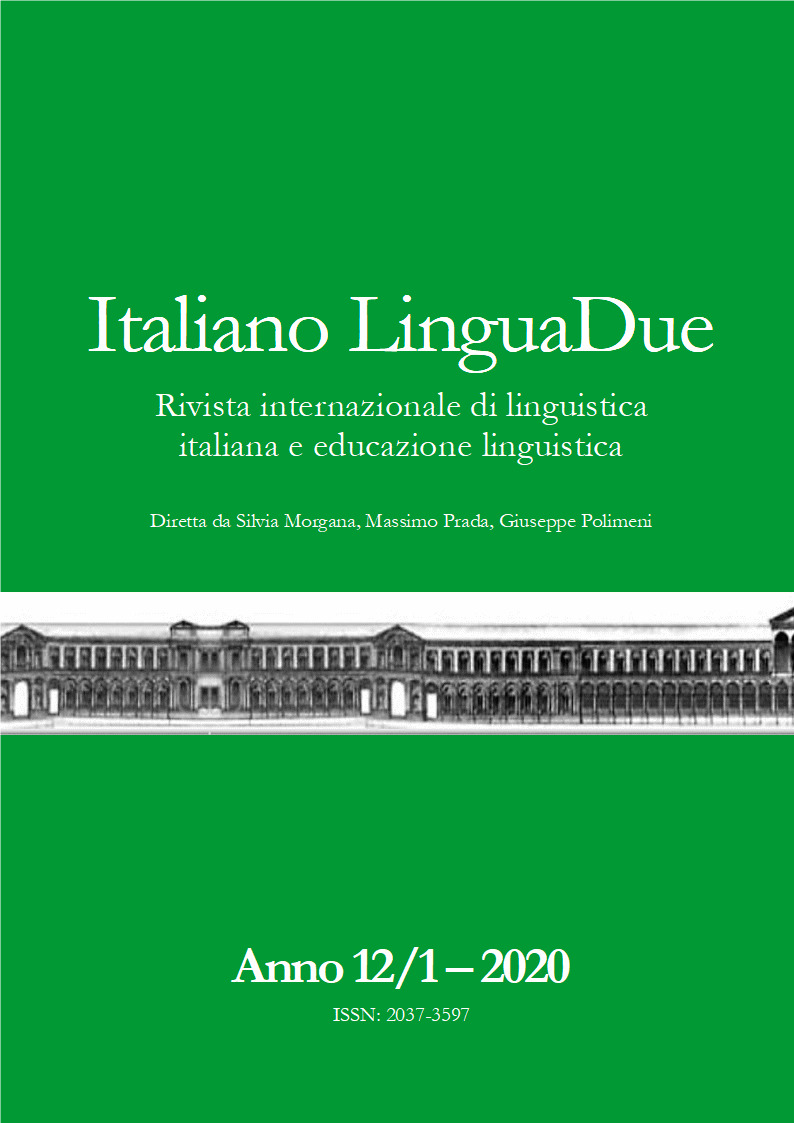BILINGUISMI AL PLURALE: PER SCELTA, PER NASCITA, PER MIGRAZIONE. REPERTORI E PRATICHE LINGUISTICHE NELLE SCUOLE E NEI SERVIZI EDUCATIVI PER L’INFANZIA
DOI:
https://doi.org/10.13130/2037-3597/13763Abstract
Nel testo, vengono approfonditi i temi riguardanti le varie forme di bilinguismo osservate oggi fra i bambini e i ragazzi, dal momento che ognuno è bilingue a modo suo. Attenzione particolare al neoplurilinguismo che si è affermato in Italia a seguito dell’immigrazione straniera e degli alunni “nuovi italiani” presenti a scuola. Vengono inoltre discusse le modalità di comunicazione e gli usi linguistici fra L1 e L2 registrati nelle tre generazioni della migrazione, anche a partire da ricerche condotte in altri contesti e che ci hanno riguardato in passato come Paese di emigrazione. Sono presentate proposte e modalità operative per valorizzare la lingua madre degli allievi, realizzate nell’ambito del progetto europeo IRIS, anche in linea con la normativa italiana ed europea sulla scuola multiculturale e plurilingue. A conclusione del capitolo, viene proposto il Piccolo Manifesto della Lingua Madre, come strumento per sollecitare consapevolezze e discussioni fra i docenti, gli educatori, i genitori, gli operatori.
Bilingualisms in the plural: by choice, by birth, by migration. Language repertoires and practices in schools and educational services for children
In this paper, themes concerning the various forms of bilingualism observed among children and young people are explored in-depth, since everyone is bilingual in their own way. Particular attention is paid to the neo-multilingualism that has become established in Italy as a result of foreign immigration and the "new Italians" present at school. The modes of communication and the linguistic uses between L1 and L2 recorded during three generations of migration are also discussed, starting from research conducted in other contexts and which concerned us in the past as a country of emigration. Proposals and teaching methods to enhance the students’ mother tongues are presented, carried out in the European project IRIS, also in line with Italian and European regulations on multicultural and multilingual schools. In conclusion, the Piccolo Manifesto della Lingua Madre is proposed as a tool to encourage awareness and discussion among teachers, educators, parents and operators.




